Our longing for Thailand never seems to cease. But now we look beyond the hip hangouts and touristy shores, searching for true gems. And we’ve found one on the island Krabi. After only a year since its opening has Banyan Tree Krabi established itself as the hottest new resort in Thailand. We had the chance to speak to Craig McMahon, Area Director of Sales & Marketing at Banyan Tree about the design concept, their unique approach to combine personal well-being and greater sustainability into one concept, and what he foresees as travel trends for the future.
When guests arrive at the resort, they are greeted with a “wai” gesture welcoming them to a Sanctuary for the Senses. Referring to the wondrous nature that surrounds Banyan Tree Krabi, the dedicated staff hope visitors to take time to enjoy the views, the scents, and the sounds of the rainforest and the sea.
With a lush jungle scene as backdrop, and sea view of Krabi’s world-famous limestone wonders at sunset, this resort will make for some memorable moments.
Since the launch late 2020, Banyan Tree Krabi is showcasing not only the most Instagrammable setting that for sure will make for some memorable moments – although guests are advised to turn off their phones during their stay – but also true, and genuine hospitality, that Thai people are masters of.
Heading this new establishment is long-time industry veteran Craig McMahon, Area Director of Sales & Marketing at Banyan Tree Krabi & Samui.
– We are blessed with one of Thailand’s most famous vistas, the Than Bok Khorani National Marine Park, whose limestone cliffs jutting from the sapphire sea adorn many a photograph and postcard. That iconic image sits just a kilometre or two offshore, directly in front of the hotel, and every villa faces westwards towards the limestone towers and the sunset. It truly is the most magnificent sight. And behind us we have the Naga Crest Mountain, which is a protected national park and a rainforest ripe for hiking with trails, waterfalls, and abundant plants and flora.
What is the vision behind Banyan Tree Krabi?
– Banyan Tree opened its first ever hotel in Phuket back in 1995. So, after expanding the brand across the world for 25 years, it was indeed good karma to come full circle, back to the Andaman Sea, which our chairman believes to be one of the most picturesque places in the world. The time was right to create a “sanctuary for the senses” at this location, to help consolidate Tubkaek Beach as an exclusive venue. To date, there is still no traffic light, no 7-Eleven, nor even a grocery store on the beach. It remains serene and unspoilt. It may also be worth mentioning that Krabi Province in general is taking more and more of the spotlight as an idyllic paradise, as many returning guests to Thailand perhaps feel that nearby Phuket has become too crowded and commercial.
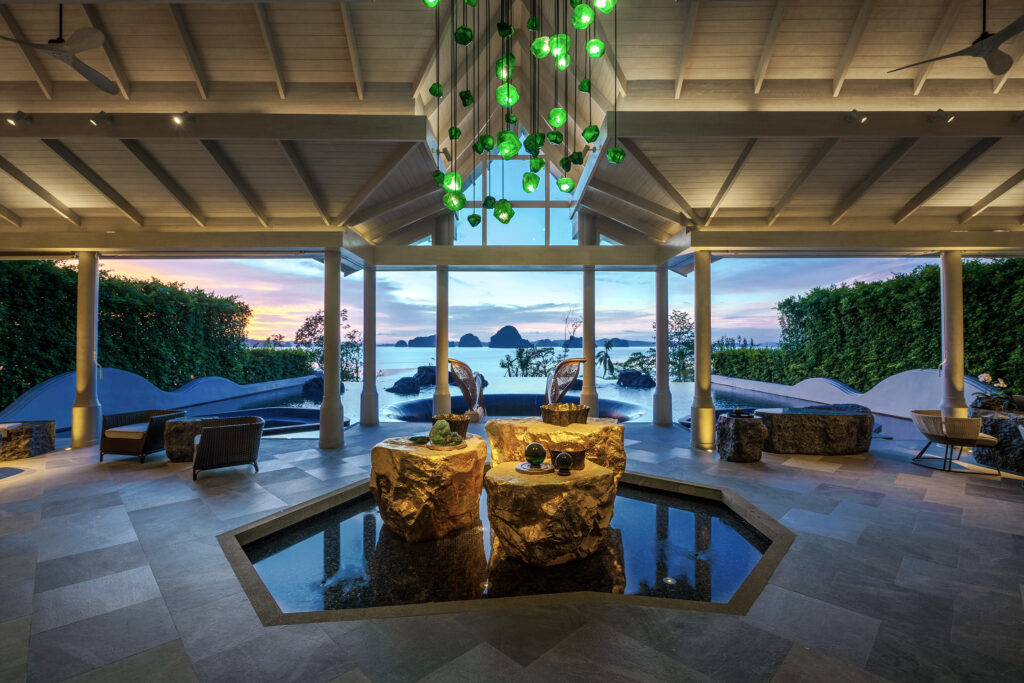
Design-wise is Banyan Tree Krabi quite spectacular. Could you tell us more about the design, and who is behind it?
– The resort was designed by Architrave, Banyan Tree’s in-house design team. First and foremost, the concept was to deliver a soothing and enchanting ambience. A place where time stands still, where you don’t wear a watch and bury your face in your Iphone; instead forget about the pressures of everyday life. To that end, the team strived to maintain the natural setting as much as possible; the tiered hillside, the tree-lined beachfront, the mountain stream that flows right through the resort into the sea. Meticulous landscaping was key, and we think the resulting gardens and ubiquitous water features are an inspiration. The other element that was carefully introduced into the design was the “naga” symbol. A naga is a legendary serpent from Hindi mythology, but the fishing folk at Tubkaek tell many a tale and are quite superstitious about the naga. We wanted to honour that tradition, and so throughout the resort you’ll find images of the naga – sometimes very subtle – in the form of scaled patterns on the walls, a wavy serpentine staircase, and other naga motifs.
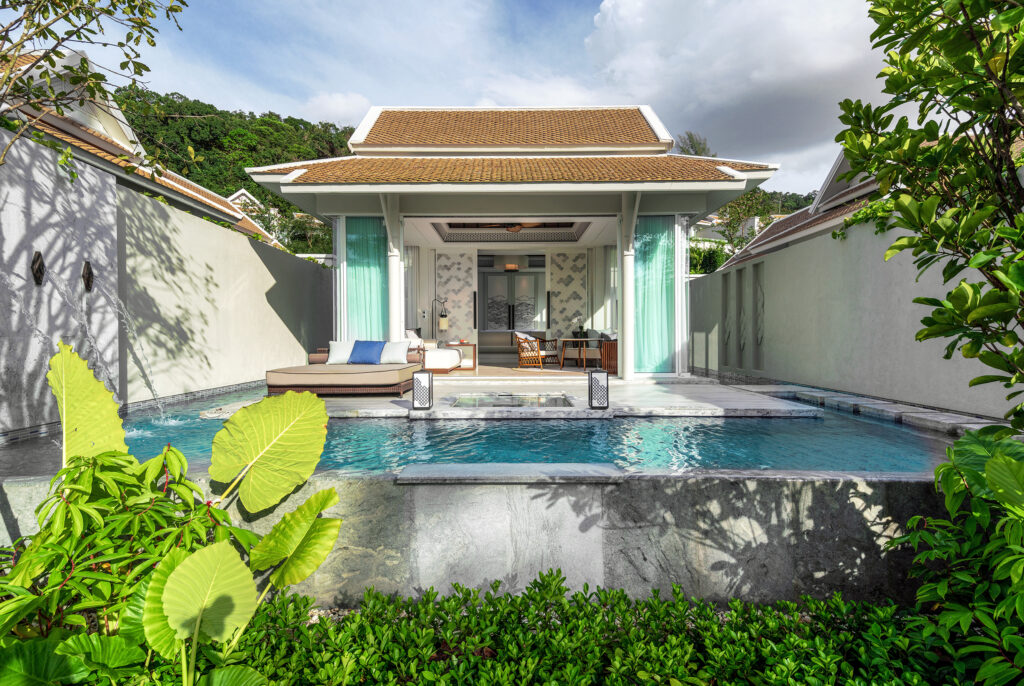
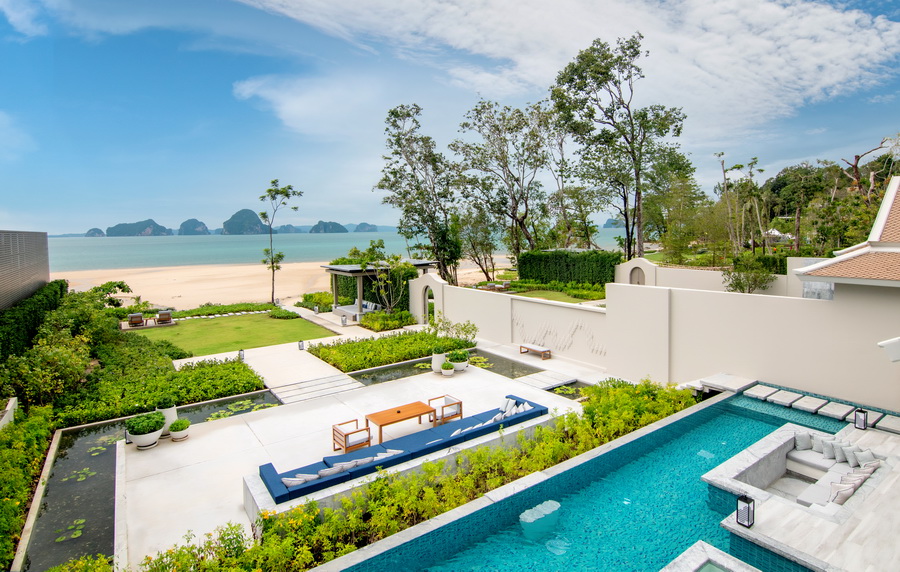
More and more travelers are seeking genuine experiences, for instance staying at resorts focusing on gastronomy or wellness. How have you incorporated that in your resort offering?
– One of the most recent developments is the introduction of our ”well-being sanctuary” conceptand the adaptation of several suites at the resort to be private. Our unique approach is to combine personal well-being and greater sustainability into one concept. We believe that well-being is about the connection within the self: mind, body, and soul; and without, between self, others and nature, or the world around us.
Can you tell us about the sustainability projects that you work with?
– At Krabi, we have our own herb garden, as you would expect from a venue that prides itself as a well-being sanctuary. Our chef grows an amazing variety of herbs and vegetables that can be naturally included in many local recipes. In fact, we have a sustainability team headed by Ms. Thepsuda who is a marine biologist from Bangkok. She is dedicated and works constantly to ensure we achieve maximum sustainability and minimum carbon footprint. Other sustainable steps worth mentioning, is that in 2020, in line with marine conservation goals, the group implemented a 25 percent benchmark of sustainable seafood sourcing by 2025 from sustainable fisheries. Banyan Tree Global Foundation said its experts will review seafood species served at each location and support identification of sustainably certified alternatives and opportunities for its properties.
What are the challenges for you as a resort and hotels group to meet the demands from sustainably conscious and demanding guests?
– Indeed, the world has changed in the post-pandemic period, and we are very much aware that we must change with it. In all modesty, we believe that Banyan Tree anticipated these moves years ago. We foresaw the market demand for sustainability and environmental awareness. In 2019, global watchdog EarthCheck recognised our sister resort Banyan Tree Samui as the first and only “Gold” rated hotel in Thailand in terms of eco-friendliness. Sustainability and “green living” are part of the DNA of the Banyan Tree brand. You’ll find it worldwide and nowhere more so than at our resorts in Samui and Krabi. As mentioned, one of the most recent developments is the adaptation of several villas at each resort to be “well-being sanctuaries” – a program whereby guests can choose from a menu of activities to meet their own health, fitness and spiritual goals. Of course, there is always more work to be done, and we are constantly looking at ways to improve our service and facilities. However, we do believe that we will continue to be one of the industry’s torchbearers of sustainability and well-being in the years to come.
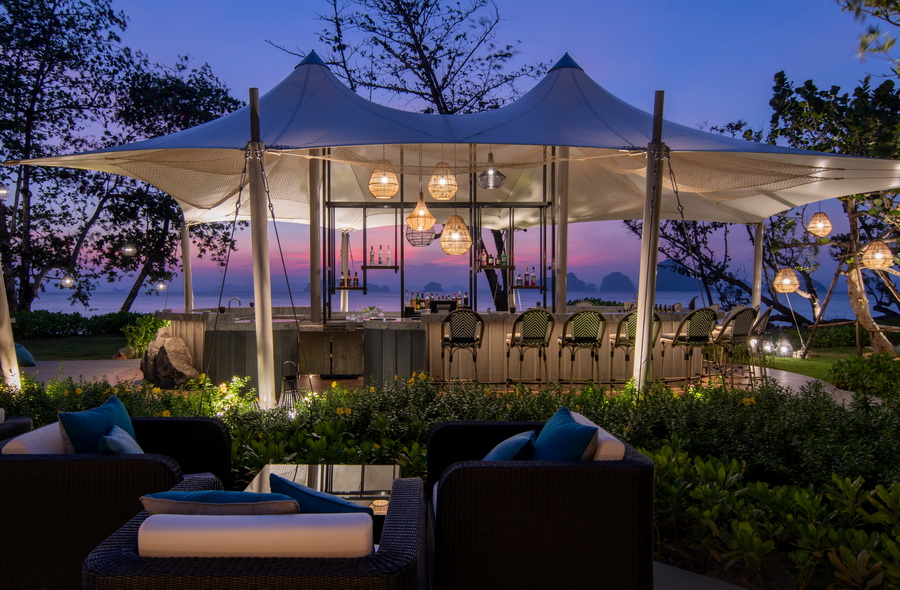
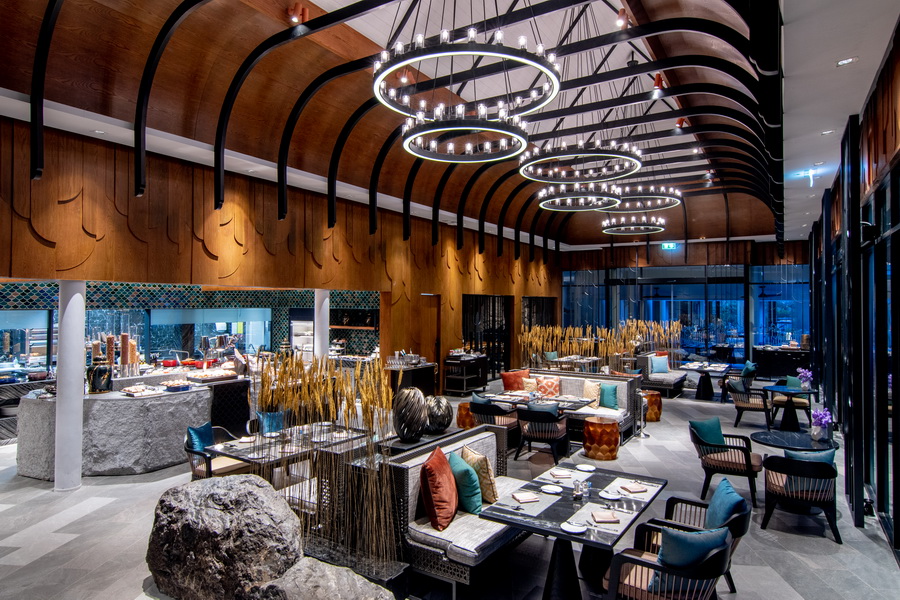
Besides sustainability and eco-travelling, what other travel trends and challenges for the industry do you foresee?
– The biggest challenge facing the hospitality industry is an acute shortage of good, solid, dedicated industry professionals. Covid-19 has had a lasting impact on the travel industry and left many seasoned hoteliers disillusioned for a variety of reasons. Having never been the most well-paid industry, and despite expecting employees to work grueling hours in often difficult and challenging circumstances, the hospitality industry is now struggling to retain and motivate existing talent. But also attract new talent, as people are now especially wary of joining an industry that was forced to turn its back on thousands of loyal employees for reasons beyond their control. There are plenty of new travel trends, ranging from the demand for heightened health and safety standards, an emphasis on “local” experiences, solo travelling, the blending of business and leisure travel or “bleisure”, to “revenge travel”, and shorter booking lead times as guests now tend to impulse book short holidays whenever they have a window of opportunity.
Opening the resort during an extremely difficult time, what was that like?
– It was incredibly challenging and very much stop-start with all the various restrictions continually being imposed. Inevitably the entire team were stretched beyond their limits, but it all paid off in the end and we were very proud to achieve what at first had seemed like an impossible task. With international borders closed we were solely reliant on the domestic market. The opening was a resounding success, considering that this was achieved during the first global pandemic in over a hundred years. As proof, the resort posted a net profit in its first month of operation which, considering the immense challenges posed by the pandemic was a pleasant if surprise for all the various stakeholders. Today, the resort appeals to a wide range of demographic ranging from couples on holiday, families with children, multi-generational family groups, honeymooners, leisure travelers, niche corporate retreats, weddings, the LGBT market and more.
If you look ahead, what will be the key to your success, and how will you work to maintain that high level of excellence?
– Maintaining a sense of discipline and humility is important. That and proper planning, detailed analysis, keeping your team focused and always motivated, as well as setting and hopefully achieving both short and long term personal and professional goals.
And for Banyan Tree Group, what do you foresee in the future in terms of expansion and other types of developments?
– The group expects to open 14 new hotels and rebrand through conversion of two hotels in the next twelve months. Over the next three years, some 50 new hotels are expected to open in line with the group’s ambition to double its operating footprint. My personal focus and vision now are to position and establish Banyan Tree Krabi as one of the top luxury resort experiences in Southeast Asia.
FACT BOX:
Craig McMahon
Position: Director Sales Banyan Tree
Background (in brief): Born in India into a military family, with his father employed in the air force, the family traveled extensively. At the age of 17, the family re-located to Paris, and six months later, Craig moved to the UK to enroll at college, having decided to pursue a career in hospitality. Started his career at the front office at St James Court Hotel in London (part of Taj Hotels & Resorts). Joined The Imperial Hotel in New Delhi after a few years, before leaving as Director of Sales to move to Bangkok, Thailand. Held the position as Area Director of Sales & Marketing at Six Senses Resorts & Spas followed by a Director of Sales & Marketing position with Soneva Resorts overseeing their properties in the Maldives & Thailand. Has been in his current role with Banyan Tree Hotels & Resorts since 2013.
Dreams about: A healthy and happy life for my family and friends. And to see people the world over, taking the time to appreciate nature in all its beauty, interacting and talking to each other, laughing and making eye contact, enjoying the great outdoors with friends or strangers. Any kind of normal, healthy interaction, instead of spending most of their time glued to a tiny screen, hopelessly addicted to the lures of technology.
For more information, please visit Banyan Tree Krabi
